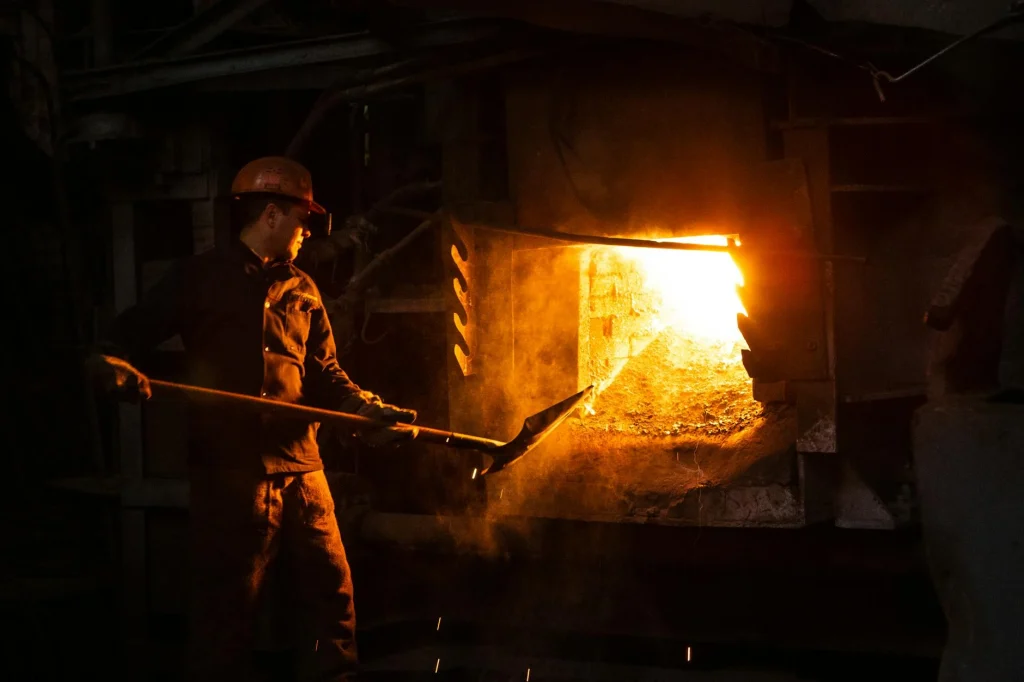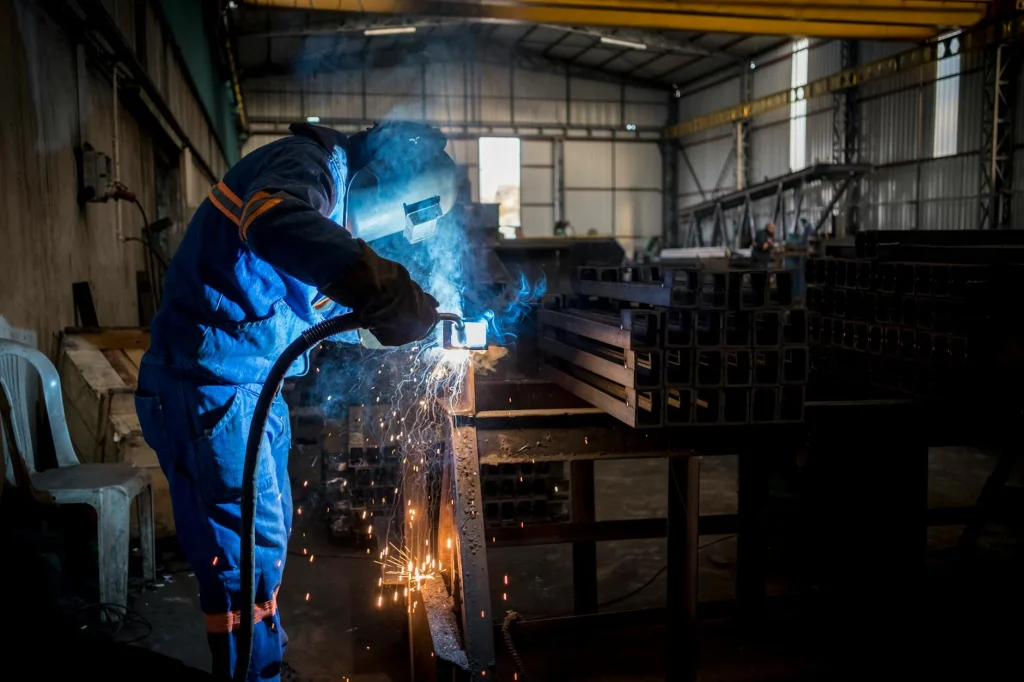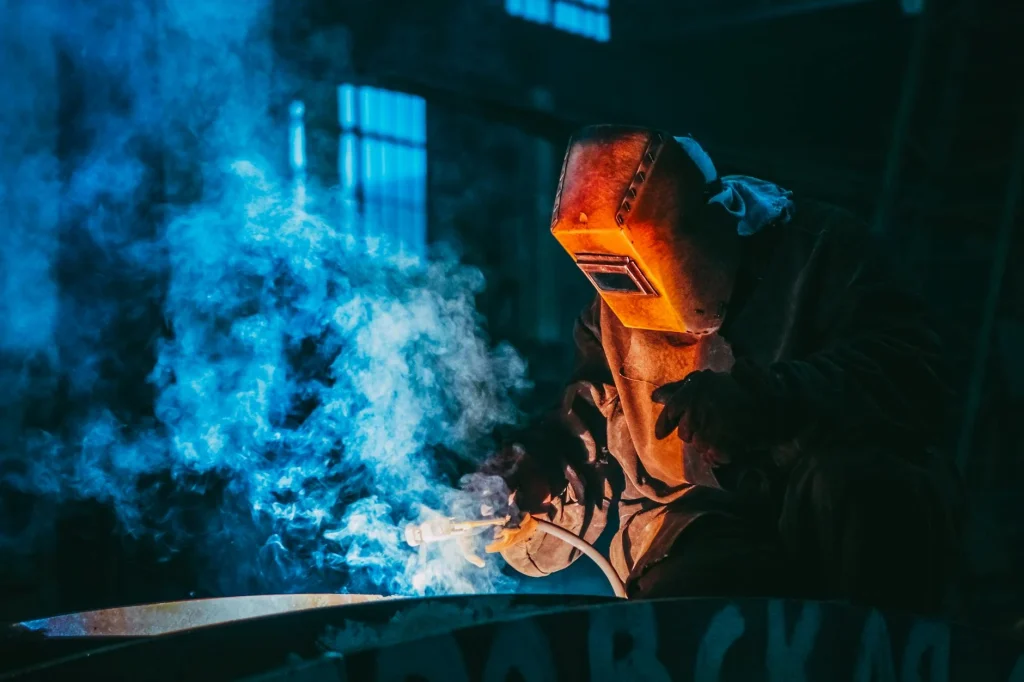
Are you ready to unlock the hidden potential of India’s job market? While white-collar jobs often steal the spotlight, a silent revolution is brewing in the blue-collar sector. As we approach 2025, the demand for skilled blue-collar workers is skyrocketing, offering unprecedented opportunities for those willing to get their hands dirty.
Imagine a future where your practical skills are not just valued but highly sought after. Where your expertise in trades and technical fields opens doors to lucrative careers and stable employment. This isn’t a distant dream—it’s the emerging reality of India’s job landscape. But here’s the catch: not all blue-collar skills are created equal. The key is knowing which skills will be in high demand and how to position yourself for success in this evolving market.
In this blog post, we’ll dive deep into the world of blue-collar work in India, exploring everything from the rise of these essential jobs to the top skills that will be crucial in 2025. We’ll examine how technology is reshaping traditional roles, uncover exciting salary trends, and tackle the challenges facing this vital workforce. Whether you’re a job seeker, a career counselor, or simply curious about the future of work in India, buckle up—you’re about to discover the game-changing blue-collar skills that could define your future.
The Rise of Blue Collar Jobs in India

A. Economic factors driving demand
The surge in blue-collar jobs in India is closely tied to several key economic factors:
- Rapid industrialization
- Infrastructure development
- Urbanization
- Rising middle class
These elements have created a substantial demand for skilled workers across various sectors. Let’s examine the impact of each factor:
| Economic Factor | Impact on Blue Collar Jobs |
|---|---|
| Industrialization | Increased need for factory workers, technicians, and machine operators |
| Infrastructure | Demand for construction workers, electricians, and plumbers |
| Urbanization | Growth in service sector jobs like delivery personnel and maintenance workers |
| Rising middle class | Higher demand for skilled craftsmen and service providers |
The manufacturing sector, in particular, has seen significant growth, driven by initiatives like “Make in India.” This has led to a surge in demand for skilled workers in areas such as:
- Automotive manufacturing
- Electronics assembly
- Textile production
- Food processing
B. Government initiatives supporting skilled labor
Recognizing the importance of a skilled workforce, the Indian government has launched several initiatives to support blue-collar workers:
- Skill India Mission: Aims to train over 400 million people in various skills by 2022
- Pradhan Mantri Kaushal Vikas Yojana (PMKVY): Offers skill training to youth, focusing on industry-relevant skills
- National Apprenticeship Promotion Scheme: Provides on-the-job training opportunities
- Industrial Training Institutes (ITIs): Upgraded to meet modern industry standards
These programs not only enhance the skills of workers but also improve their employability and earning potential. The government’s focus on vocational training has helped bridge the gap between industry requirements and available skill sets.
C. Changing perceptions of blue collar work
Traditionally, blue-collar jobs were often viewed as less desirable compared to white-collar professions. However, this perception is gradually changing due to:
- Increased salaries and benefits in skilled trades
- Job security in essential services
- Opportunities for entrepreneurship and self-employment
- Growing respect for craftsmanship and practical skills
As a result, more young people are considering blue-collar careers as viable and rewarding options. This shift in mindset is crucial for meeting the growing demand for skilled workers across various industries in India.
Top High-Demand Blue Collar Skills

A. Construction and infrastructure development
The construction and infrastructure sector in India is experiencing unprecedented growth, creating a surge in demand for skilled blue-collar workers. As urbanization accelerates and government initiatives like Smart Cities gain momentum, the following roles are becoming increasingly crucial:
- Skilled masons
- Electricians
- Plumbers
- Heavy equipment operators
- Welders
These professionals are the backbone of India’s infrastructure development, contributing to the creation of modern cities, efficient transportation networks, and sustainable buildings.
| Skill | Demand Factors | Future Outlook |
|---|---|---|
| Masonry | Urban expansion, affordable housing | High demand, evolving techniques |
| Electrical work | Smart homes, renewable energy integration | Growing demand, technology-driven |
| Plumbing | Water conservation, advanced sanitation | Steady demand, focus on efficiency |
| Heavy equipment operation | Large-scale infrastructure projects | Increasing demand, automation integration |
| Welding | Industrial growth, prefab construction | High demand, specialized techniques |
B. Advanced manufacturing and automation
As India positions itself as a global manufacturing hub, the demand for skilled workers in advanced manufacturing and automation is skyrocketing. This sector requires professionals who can operate, maintain, and troubleshoot sophisticated machinery and systems.
Key roles in this field include:
- CNC machine operators
- Robotics technicians
- Quality control inspectors
- Industrial maintenance technicians
- 3D printing specialists
C. Renewable energy technicians
With India’s commitment to reducing carbon emissions and increasing reliance on clean energy, the renewable sector is witnessing exponential growth. This has led to a surge in demand for skilled technicians who can install, maintain, and repair renewable energy systems.
Technology’s Impact on Blue Collar Work

A. Digitalization of traditional trades
The digitalization of traditional trades is reshaping the blue-collar landscape in India. As technology advances, even the most conventional jobs are experiencing a digital transformation. This shift is creating new opportunities and challenges for workers across various sectors.
- Examples of digitalized traditional trades:
- Construction: Use of 3D modeling and digital blueprints
- Manufacturing: Implementation of IoT sensors and automation
- Automotive repair: Diagnostic tools and computerized systems
- Plumbing: Smart water management systems
| Traditional Method | Digitalized Approach |
|---|---|
| Paper blueprints | 3D digital models |
| Manual diagnostics | Computerized testing |
| Analog meters | IoT-enabled sensors |
B. Emerging tech-focused blue collar jobs
As technology permeates traditional industries, new roles are emerging that blend blue-collar skills with technical expertise. These hybrid positions require workers to be adept at both hands-on tasks and digital tools.
Emerging tech-focused blue collar jobs:
- Drone operators for agriculture and construction
- 3D printing technicians
- Smart home installation specialists
- Industrial robot maintenance technicians
C. Importance of digital literacy
With the increasing digitalization of blue-collar work, digital literacy has become crucial for career advancement and job security. Workers who can adapt to new technologies and digital processes are more likely to thrive in the evolving job market.
Key digital skills for blue-collar workers:
- Basic computer operation
- Mobile app usage for job-related tasks
- Data entry and interpretation
- Understanding of IoT devices and systems
As we move forward, the integration of technology in blue-collar work will continue to shape salary trends and career growth opportunities in India.
0 Comments